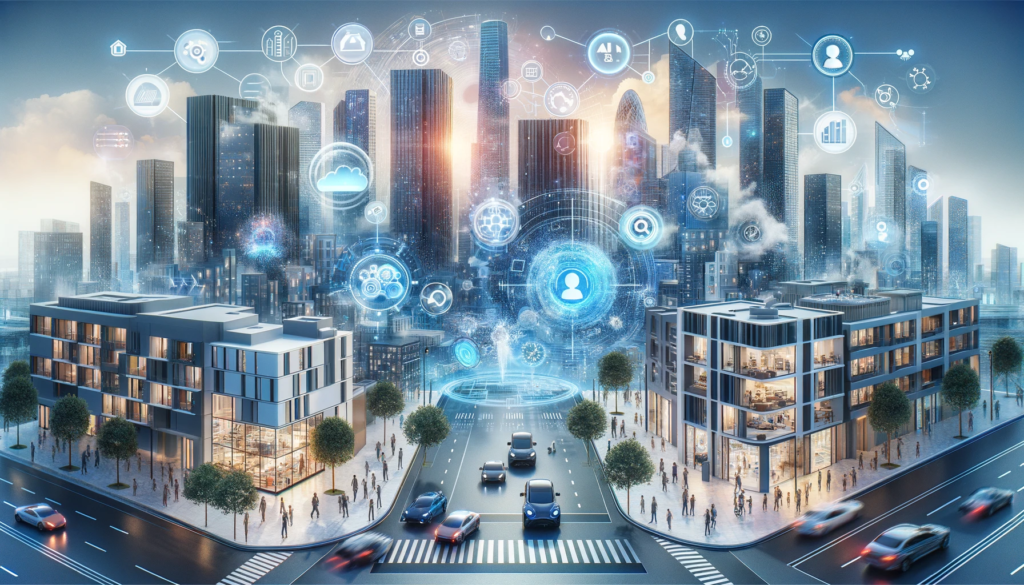
Discover the future: A 2024 cityscape where AI seamlessly blends into every aspect of urban living – from smart buildings to autonomous vehicles.

Discover the future: A 2024 cityscape where AI seamlessly blends into every aspect of urban living – from smart buildings to autonomous vehicles.
As we step into 2024, the landscape of artificial intelligence (AI) is not just evolving—it’s on the cusp of epoch-making change. 2023 was a watershed moment in AI’s journey, marked by remarkable advancements and widespread adoption. But what lies ahead is not just a continuation of this trend; it’s a transformation that will redefine our interaction with technology.
Michael Lee’s insightful piece on Fox News provides a comprehensive overview of the state of AI as we enter 2024. Pioneers in the field like Christopher Alexander of Pioneer Development Group and Samuel Mangold-Lenett of The Federalist have laid down predictions that are not just forecasts but blueprints of a future dominated by intelligent machines.
In 2023, we witnessed AI breaking the shackles of theoretical confines and becoming a tangible part of our daily lives. From Microsoft’s leap into AI integration with Bing and Windows 11 to the advent of niche AI companies, the technology shifted from being a backstage player to a leading actor on the world stage.
But what makes 2024 different? It’s the year when AI is expected to become deeply personalized and profoundly integrated. The concept of ‘custom AI models’, as highlighted by Phil Siegel of CAPTRS, isn’t just about technological sophistication; it’s about creating a symbiosis between AI and human needs. We’re looking at AI that understands individual preferences, adapts to unique contexts, and evolves in real time.
Moreover, 2024 is not just about the expansion of AI’s capabilities but also its accessibility. Startups now leverage AI to carve out new markets, develop groundbreaking products, and redefine customer experience. This democratization of AI will fuel innovation at an unprecedented scale.
Yet, with great power comes great responsibility. The strides in AI regulation are not confined to any single nation or continent. As we’ve explored in previous articles on this blog, the European Union has been at the forefront of shaping AI governance. In 2023, the EU’s landmark regulation set a precedent for balancing technological innovation with ethical standards and societal welfare. These regulations, heralded as a model for global AI governance, emphasize not just the technological prowess but also the ethical and societal implications of AI. This approach underscores the need for robust, flexible, and forward-looking policies that can keep pace with AI’s rapid evolution. As we step into 2024, the challenge and opportunity lie in harmonizing these regulatory frameworks with the global march of AI, ensuring a cohesive and responsible advancement of technology.
So, what’s the unusual perspective here? It’s not just about AI’s exponential growth; it’s about its integration into the fabric of our society. AI in 2024 is set to become more than a tool or a technology—it’s poised to become a partner, an enabler, and a catalyst for human potential.
As a tech enthusiast and IT professional who has closely followed AI’s journey so far, I believe we are standing at a crucial juncture. The decisions we make, the directions we take, and the policies we implement in 2024 will shape the future of AI and humanity. Let’s embrace this change with open arms and open minds, ready to ride the crest of this wave of innovation.
Well, in short, 2024 promises to be a very interesting breakthrough year! Happy year of innovation to all!
